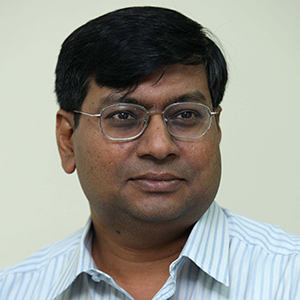The question of how Malaysia can reverse its slide into a quagmire of dirty politics, corruption and social decline is sadly a pressing one today.
 Indeed, there is no escaping the fact that good governance in the country is under great strain. A primary cause is that the principle of separation of powers has been degraded over several decades by the executive’s dominance over Parliament and the unwillingness of the judiciary to curtail the executive’s unwholesome control over national resources and institutions.
Indeed, there is no escaping the fact that good governance in the country is under great strain. A primary cause is that the principle of separation of powers has been degraded over several decades by the executive’s dominance over Parliament and the unwillingness of the judiciary to curtail the executive’s unwholesome control over national resources and institutions.
Much has been said about the cumulative erosion of checks and balances on the government’s powers, manifesting as the loss of accountability, arbitrary rule and co-option of dissenting voices. As a result of these trends, the usual mechanisms for containing abuse of power have become patently ineffective.
In a nutshell, these abuses show up as the misallocation of resources for political purposes and private gain, the truncation of civil liberties, condoning of mob rule and other unsavoury tendencies.
Consequently, the deficit in good governance exacts a high price on the people’s quality of life, notably in the pursuit of redress and access to civic rights.
Faced with this scenario, concerned citizens and interest groups would want to rectify the situation, but many may be intimidated by the enormity and complexity of the challenges facing them. The key is therefore for the people to discover the motivation to set right the imbalances that are besetting the nation.
While a small number of altruistic individuals are driven by noble qualities like the pursuit of justice, the promotion of human rights and a commitment to democratic principles, the larger part of society, truth be told, tend to weigh these values against practical considerations such as self-preservation and the risk-benefit balance in pushing for change.
This is only human nature.
Nevertheless, a time comes in the life of a nation when a new chapter in its power dynamics begins to unfold. A desire arises to re-examine the assumptions on which the national enterprise operates.
Institutions that regulate the workings of the legislative, administrative and political machineries and the relationships among its demographic groups come under new scrutiny.
This occurs against a backdrop of changing mores and emerging economic forces as a result of international trade, cultural assimilation and the natural evolution of societies. The upshot is that old models of social organisation, including its political frameworks, economic divisions and cultural stereotypes are seen to be out of sync with the times.
Today, there is a palpable sense among an emerging generation of Malaysians that an open, accountable and responsive political system must evolve in order to give the next generation a fair chance of creating a progressive new nation. Their articulate arguments for transparency, good governance and fair play at every turn of national events enliven the most widely followed news portals and aggregator sites.
Although a common theme in these forums is the discussion on precipitating such a change through the ballot box, there is, however, an air of uncertainty over the idea. There are frequent allusions to the entrenched interest groups that are controlling the political process, and conversely, serious doubts about the viability of alternative political alignments.
There is no doubt that an abrupt change in the political landscape would be accompanied by significant shifts in national policies and priorities, reconfiguration of institutions, redistribution of resources and so on. This would require steady hands to manage.
Indeed, fear of a disruptive change would in itself be a powerful deterrent for a majority of the people to venture into this unknown territory.
However, change can also be incremental and well-regulated if the actors involved are convinced about the necessity of an organic transformation. The announcement last week of a transformation plan for local governments, which provides for underperforming officials to be transferred out of their entrenched positions is an example of such a change, which can potentially improve service delivery and the institutional culture of the third tier of government.
Incremental change can also result from the sustained pressure of civil society actors, such as parents’ groups advocating for educational reforms for quality, integrity and market relevance. Indeed, the strong desire of parents to create a better world for their children may be among the most powerful of change agents, as the hope for the future tends to burn more strongly in the parents’ hearts than decaying institutions could possibly dampen.
Indeed, such initiatives could potentially nurture a future generation that expects a higher level of governance in not just the education sector but also in the institutions of state, than their parents have witnessed.
Such a transformation, if diligently pursued until it flourishes and invigorates the relevant institutions, would not only give rise to a mature and enduring legacy that can withstand potential political change, but also maintain its independence from a hegemonic political apparatus.
An organic social evolution, rather than a disruptive political revolution, may therefore bring us out of our current morass into a new era in governance, driven by a responsible and responsive political system. – February 27, 2016.
* This is the personal opinion of the writer, organisation or publication and does not necessarily represent the views of The Malaysian Insider.


Comments
Please refrain from nicknames or comments of a racist, sexist, personal, vulgar or derogatory nature, or you may risk being blocked from commenting in our website. We encourage commenters to use their real names as their username. As comments are moderated, they may not appear immediately or even on the same day you posted them. We also reserve the right to delete off-topic comments